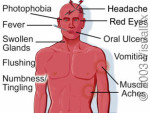As LagosMums, most of us have heard about the recent Lassa Fever outbreak; but many of us have questions about how to protect our family and children from the transmission of the virus. Below are key facts about Lassa fever and steps you can take to protect yourself that every parent and caregiver should be aware of.
What you Need To Know About Lassa Fever
FACT #1: LASSA FEVER IS AN ILLNESS CAUSED BY THE TRANSMISSION OF THE LASSA VIRUS THROUGH THE MULTIMAMMATE RAT FOUND IN WEST AFRICA.
Lassa fever was first diagnosed in 1969 after two missionary nurses died in Lassa town of Nigeria. Lassa fever occurs when the Lassa virus is transmitted to humans through a common African rat or through person-to-person or healthcare spread. Other ways the virus is transmitted:
- Contact with an infected rat’s faeces or urine through directly touching the rat’s body fluids, touching objects or food contaminated with the rat’s fluids, or through cuts or sores on a human.
- Inhaling tiny particles in the air contaminated with excretions of the rat.
- Eating an infected rat.
- Person-to-person contact with body fluids of an infected human. The transmission does NOT occur through casual skin-to-skin contact where body fluids are not exchanged.
- Transmission through infected medical equipment.
FACT #2: HIGH-RISK GROUPS FOR CONTRACTING THE VIRUS INCLUDE
- Anyone in close contact with the infected rat. These rats are common in West Africa, making their control and eradication very difficult. However, people who keep unsanitary environments with exposed foods are more likely to harbour the rats.
- Healthcare workers who do not take appropriate protective measures against body fluids.
- Families and friends of infected persons who might assist with feeding and cleaning them.
FACT #3: EARLY DIAGNOSIS = EARLY TREATMENT
According to WHO, The incubation period of Lassa fever ranges from 6–21 days.
The onset of the disease is usually gradual, starting with fever, general weakness, and malaise. After a few days, headache, sore throat, muscle pain, chest pain, nausea, vomiting, diarrhoea, cough, and abdominal pain may follow. In severe cases, facial swelling, fluid in the lung cavity, bleeding from the mouth, nose, vagina or gastrointestinal tract and low blood pressure may develop.
Persons with these symptoms should visit a doctor as soon as possible for further evaluation. The good news is that unlike Ebola, there is an anti-viral treatment used to cure Lassa fever called Ribavarin. Thus, early diagnosis can save lives.
Call 08037170614 or 08022234273 to report suspicious cases.
Read More from the Nigeria Centre for Disease Control
Steps you can take to protect yourself and your Family from Lassa fever
The most important point is to avoid contact with the “multimammate” rats. Humans usually become infected with Lassa virus from exposure to urine or faeces of infected rats. Below are ways to do this:
1. Personal hygiene
Wash your hands regularly. In the course of our daily activities, we shake hands, handle money and we don’t know what we touch or come in contact with, most importantly, we don’t know where those things have been and if they have come in contact with multimammate rats. Hand sanitizers are a must-have for those periods where you cannot wash your hands.
2. Foodstuff hygiene
Store foodstuff properly in rodent-proof containers where rats cannot gain access to them. Don’t eat meat from “multimammate” rats i.e Bushmeat
What about the foodstuffs we buy in the markets and how do we know if they have been exposed? During this outbreak of Lassa fever, it is important to be extra careful and get our foodstuffs from reliable sources. Washing of foodstuff well before use or consumption is essential. In addition, you must be careful about eating out, avoid eating in places with dirty environments.
When drinking or eating from cans, make sure you clean the top of the can before opening. Most times, when we buy canned products, we just open it and start using, assuming that it is safe. We need to stop doing this because it is easy for rodents to have deposited waste on them.
3. External Environment 
Good hygiene and proper environmental sanitation are important. This would help to reduce the rats in the community as well as in the homes. Properly dispose of garbage far away from homes. This is the time to ensure that your garbage is picked up on time and disposed of.
4. Maintain a clean home 
Keep the home clean to discourage rats from entering the home. Keep garbage cans neat and tightly closed at all times. It is advisable to dispose of garbage far from homes and daily. For those that have rats, this is a good time to set traps for the rats and to call the fumigator.
5. Interaction with People
We all need to be careful with who we come in contact with especially as it concerns our children. The virus can also spread among humans; this can be through direct contact with the blood, urine, faeces, or other bodily secretions of an infected person. If you have staff that commute, encourage them to wash their hands often and inform them about the dangers. Do not let strangers touch your children and ask your child’s school about their safety policy. Lassa Fever is not like Ebola
Transmission by Travelling
We should pay attention to the movement of people across state lines. It is possible for a traveller to pick up the virus from travel. We should all stay informed about the efforts that Lagos state is making to prevent other cases.
According to Dr Sade Adeyi; when we go to hospitals, we should try as much as possible to limit the things we touch. We should enforce safe injection practices. For example, we should always request that our doctors or nurses use new needles if at all we want to receive injections. For hospital staff, increased safety precautions should be practised with protective barriers such as long gowns, face masks and gloves worn. Lastly, when taking care of people or family members who are ill, it is very important to avoid contact with the sick person’s body fluids.
If you love cats, this would be a good time to have them as household pets
Note that we don’t have to be paranoid, we just have to be careful and keep our family safe.






